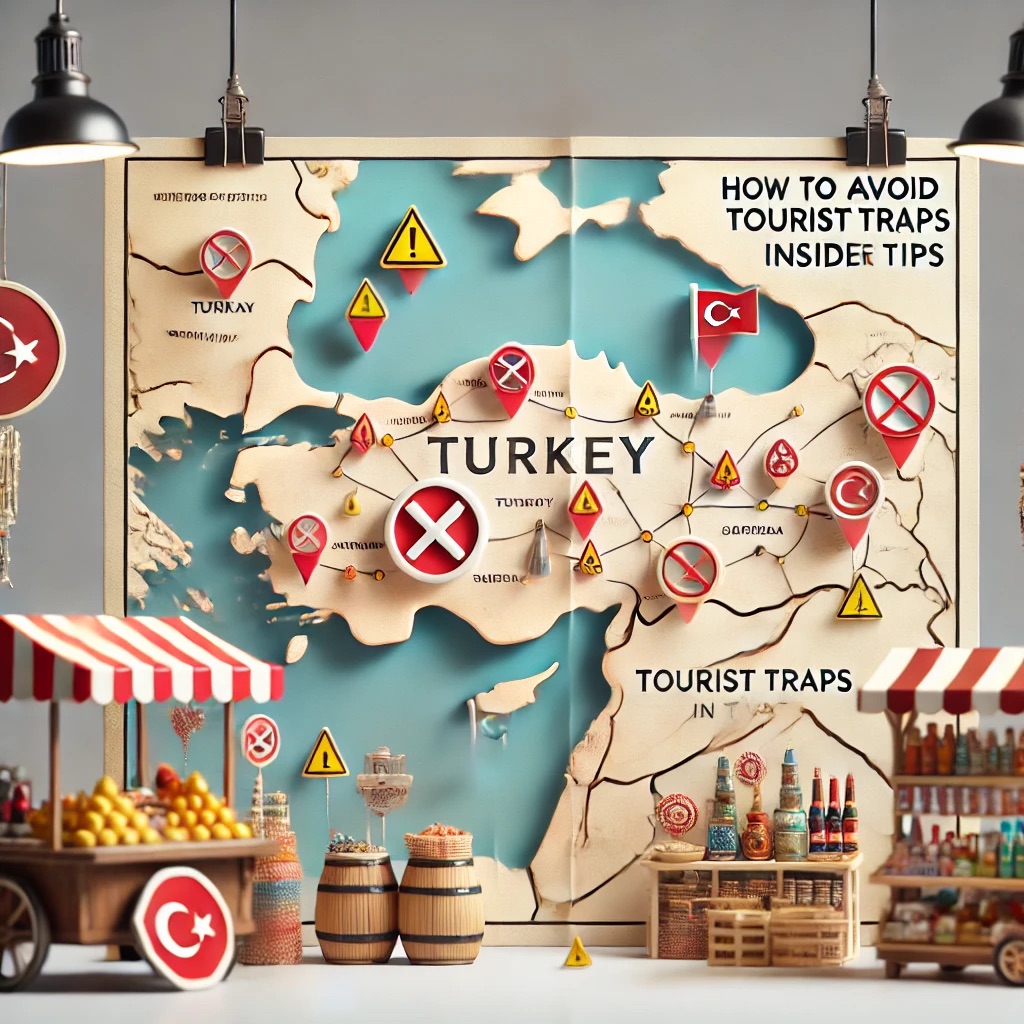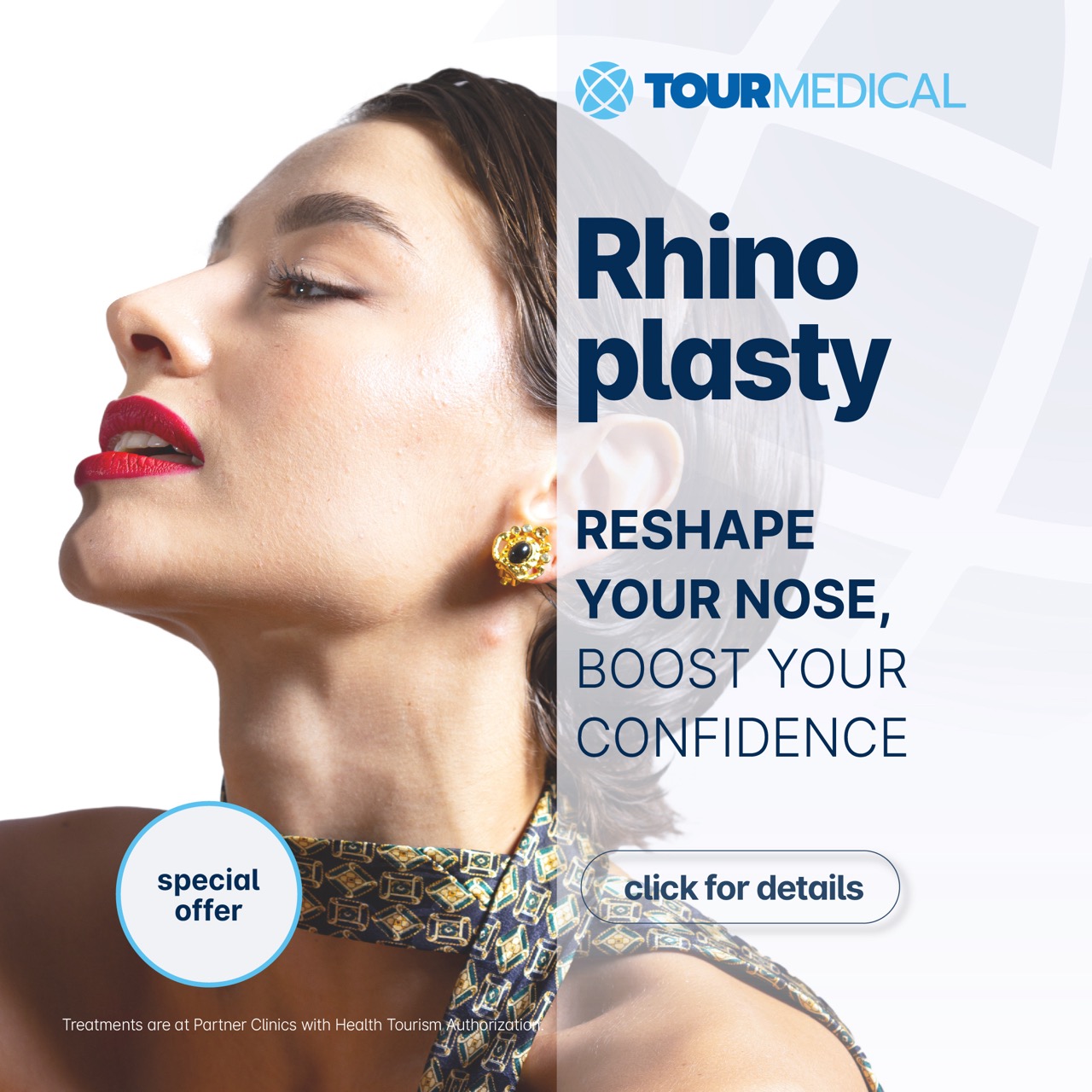Turkey is a country filled with breathtaking landscapes, rich history, and vibrant culture. However, like many popular travel destinations, it also has its share of tourist traps—places or experiences that are overpriced, inauthentic, or designed to take advantage of tourists. To make the most of your trip and ensure you’re experiencing authentic Turkey without falling into common traps, here are some valuable insider tips on how to avoid tourist traps in Turkey.
1. Beware of Overpriced Restaurants in Tourist Areas
Many restaurants in popular tourist areas like Sultanahmet in Istanbul or near major attractions such as Ephesus and Pamukkale often inflate their prices for tourists. You can end up paying significantly more for food that may not be of the best quality.
How to Avoid Overpriced Restaurants:
- Eat Where Locals Eat: The best way to avoid tourist-trap restaurants is to eat where locals do. Ask locals for recommendations or look for restaurants that are crowded with Turkish patrons.
- Avoid Restaurants with Aggressive Touts: If someone is persistently trying to get you into their restaurant, it’s often a sign that the food might not be worth the price. Walk a few streets away from major tourist areas to find more authentic and reasonably priced options.
- Check the Menu and Prices: Always ask for the menu with prices before sitting down, and make sure you understand the pricing. Some places have separate menus for locals and tourists, with significantly higher prices for tourists.
Travel Tip: Try visiting lokantas—local eateries that serve traditional Turkish dishes. These are often frequented by locals, and the food is authentic and reasonably priced.
2. Avoid Overpriced Souvenirs and Shops Near Major Attractions
Shopping for souvenirs in Turkey can be a wonderful experience, but buying items in shops near major attractions like the Blue Mosque, Hagia Sophia, or Grand Bazaar can lead to overpaying.
How to Avoid Overpriced Souvenir Shops:
- Shop Away from Tourist Attractions: Take time to explore areas away from the main attractions to find better prices on souvenirs. You can often find similar items at a fraction of the price.
- Haggle Wisely: In many tourist areas, prices are inflated with the expectation that you will haggle. Polite and respectful negotiation is common, especially in markets like the Grand Bazaar. However, if a vendor is unwilling to budge even a little, it may be a sign that you're in a tourist trap.
- Know the Real Value: Do some research on the average prices of popular items like rugs, ceramics, and spices so you have a rough idea of how much you should be paying.
Travel Tip: Visit local markets, such as Kadıköy Market in Istanbul, for authentic products at fair prices. You’ll also get a better sense of local culture and everyday life.
3. Say No to Unsolicited Guides and “Free” Services
In areas like Sultanahmet, Cappadocia, and around historical sites, you may encounter individuals offering unsolicited guiding services or “free” assistance. These often come with hidden costs and can lead to uncomfortable situations.
How to Avoid Unsolicited Guides and Scams:
- Use Official Guides: If you’re interested in a guided tour, hire a licensed guide. Official guides usually have badges and can be booked through reputable agencies or through your hotel.
- Politely Decline Unsolicited Offers: If someone approaches you offering to show you around for free, it’s best to decline politely. These guides often expect a tip or may take you to shops where they receive a commission.
- Pre-Book Tours: If you want to take a hot air balloon ride in Cappadocia or visit Ephesus with a guide, book your tours through reputable websites or your hotel in advance to avoid last-minute price hikes or scams.
Travel Tip: If you want to learn more about a site without hiring a guide, consider downloading an audio guide app or reading about the place beforehand.
4. Avoid Tourist Trap Shopping Experiences Like Carpet Shops
Turkey is famous for its handmade carpets and rugs, but many carpet shops in tourist areas are designed to lure tourists into high-pressure sales tactics. Some even offer "free tea" or "a look at the weaving process" to get you into the shop.
How to Avoid Overpriced Carpet Shops:
- Do Your Research: Learn about different types of Turkish carpets and what differentiates a quality carpet from a mass-produced one. Knowing a bit about the value of handmade carpets will help you avoid getting ripped off.
- Avoid Pressure Sales: If you feel pressured to buy, leave the shop. Many tourist traps rely on pressuring tourists into buying expensive items they didn't intend to purchase.
- Buy from Reputable Dealers: If you are interested in buying a carpet, do your shopping in well-known stores with good reviews or ask your hotel for a trusted recommendation.
Travel Tip: If you simply want to learn about carpet making without the pressure to buy, consider visiting a carpet museum or asking a local friend for a recommendation.
5. Skip the Overpriced Tours for Common Attractions
Pre-packaged tours are convenient, but they often come with inflated prices and can include stops at commission-based shops. This is especially true for day trips from Istanbul to places like Bursa or Princes’ Islands.
How to Avoid Overpriced Tours:
- DIY Instead: Many of Turkey’s attractions are easy to explore on your own. For example, you can easily take a ferry from Istanbul to Princes’ Islands without joining a costly tour.
- Use Public Transportation: Turkey has a reliable network of buses and ferries that can take you to most major tourist attractions at a fraction of the cost of an organized tour.
- Book Directly: If you prefer a guided experience, book tours directly through a reputable agency or your hotel to avoid hidden commissions.
Travel Tip: Download public transportation apps like Moovit to navigate the buses, trams, and ferries in cities like Istanbul, which makes it easy to get around without a guide.
6. Be Cautious of Overpriced Hamam (Turkish Bath) Experiences
Visiting a hamam is a must when in Turkey, but some touristy baths charge much higher rates than local ones and may not offer an authentic experience.
How to Avoid Tourist Trap Hamams:
- Research Ahead of Time: Look for well-reviewed local hamams that offer an authentic experience. Some historic hamams, such as Cagaloglu Hamam in Istanbul, are more tourist-oriented but still offer good value.
- Ask for Prices Upfront: Always ask for the price of services before committing to anything in a hamam. This helps you avoid unexpected charges for additional services like massages or special scrubs.
- Visit Less Tourist-Focused Hamams: If you want a more local experience, head to neighborhoods like Kadıköy in Istanbul, where you can find traditional hamams used by locals.
Travel Tip: Remember that prices at traditional hamams vary depending on the services you choose. It’s best to confirm exactly what you’re paying for before the experience begins.
FAQ: How to Avoid Tourist Traps in Turkey
Q: Are tourist areas like Sultanahmet in Istanbul worth visiting?
A: Yes, Sultanahmet is home to many iconic sites like the Blue Mosque and Hagia Sophia. However, be aware of overpriced restaurants and shops in the area. You can visit the attractions while dining and shopping in nearby, less touristy neighborhoods.
Q: How can I avoid getting scammed when booking a hot air balloon ride in Cappadocia?
A: Book your hot air balloon ride through reputable websites or your hotel. Be wary of deals that seem too good to be true, as they may involve hidden fees or lower-quality services.
Q: Is it okay to haggle in Turkish markets?
A: Yes, haggling is a common practice in markets like the Grand Bazaar. Just remember to be polite and walk away if the price isn’t right for you. Vendors often start with high prices, expecting you to negotiate.
Q: How do I know if a restaurant is a tourist trap?
A: If a restaurant has aggressive touts trying to get you inside, menus without prices, or is located right next to a major tourist attraction, it’s likely a tourist trap. Look for restaurants filled with locals and avoid places with pushy staff.
Conclusion: Experience the Best of Turkey Without the Tourist Traps
Knowing how to avoid tourist traps in Turkey will help you experience the country authentically and make the most of your trip. From eating at local lokantas and visiting lesser-known hamams to exploring independently, there are many ways to experience Turkey without overspending or falling for common scams.
- Eat where locals eat, and be cautious of restaurants with pushy staff or no menu prices. Walk a few streets away from popular tourist attractions to find more authentic and affordable dining options.
- Shop wisely by avoiding overpriced souvenir shops near major attractions. Instead, visit local markets like Kadıköy Market in Istanbul for authentic products at fair prices, and always remember to haggle politely.
- Avoid unsolicited guides and choose official, licensed guides or pre-book your tours through reputable agencies or your hotel. This ensures that you get knowledgeable guides without hidden costs.
- Skip overpriced tours and consider exploring attractions on your own using public transportation. Many of Turkey's top destinations, like Princes' Islands and Pamukkale, can be easily reached without the need for an organized tour.
- When visiting a hamam, do your research and look for well-reviewed local options to get an authentic experience without overpaying.
With these insider tips, you can enjoy the best of Turkey—its rich history, stunning landscapes, and warm hospitality—while avoiding the tourist traps that can detract from your experience. Whether you're exploring the bustling streets of Istanbul, taking in the surreal landscapes of Cappadocia, or lounging on the beaches of Antalya, staying aware and prepared will help you make the most of your Turkish adventure.

 English
English




















